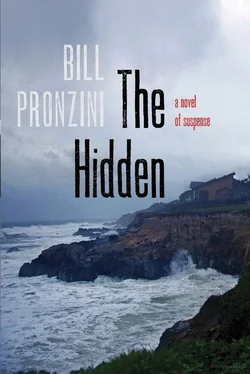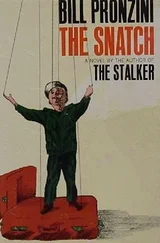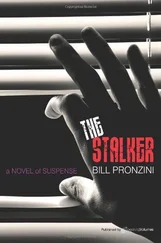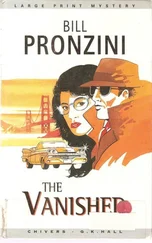“Oh,” she said, “hello. Mackson, isn’t it?”
“Macklin. Jay Macklin.”
“Right. I almost hit you back there on the lane.”
“My fault. I should’ve been paying closer attention.”
In the cold light of day, with an obvious hangover, Paula wasn’t half as attractive as she’d seemed the night before. Skin even blotchier and less healthy looking, bagged and bloodshot eyes, a network of fine lines etched across and alongside her upper lip. Her brown hair had a stringy, tangled look, as though she’d used her fingernails on it instead of a comb.
She ripped the package open, slid a filter-tip out and into one corner of her mouth. “Got a light?”
“No. I don’t smoke.”
“Yeah, well, my asshole husband doesn’t like me to smoke, either. Screw him.” She opened the purse slung over her shoulder, rummaged up a gold lighter and fired the weed. “Ahh,” she said through a spew of carcinogens. “I may just smoke this whole goddamn pack on the way to Santa Rosa.”
“You’re going home?”
“That’s right. Home not so sweet home, but at least it’s safe. There’s more than one wacko running around loose up here, by God.”
“What do you mean?”
“Just what I said. I don’t know why I came in the first place. I should’ve known better.”
“What about the others? Are they staying?”
“I don’t know and I don’t care. I wouldn’t care if they all jumped off the cliff drunk on New Year’s Eve. I used to think my big brother was a great guy, now I can’t stand the sight of him. Claire’s a nasty little bitch and Gene … he’d fuck a woodpile if he thought it had a snake in it.”
What could you say to that? Macklin didn’t even try.
“I’m not stupid, for Christ’s sake,” Paula said. “Not anymore, I’m not. Enough is enough. You wouldn’t happen to know a good divorce lawyer, would you?”
“Sorry, no.”
“Well, I’m going to need one. I can take a lot, I have taken a lot, but some things you just … Oh, shit, why am I telling you all this? You don’t care. Why should you? We’re just a bunch of strangers to you.”
Right, Macklin thought. A bunch of screwed-up strangers.
“Just getting myself more worked up, is all.” Paula exhaled another stream of smoke, dropped the butt and ground it under her heel. “Forget it—I’m outta here. Have a nice life, Ray.”
“Jay.”
“Whatever,” she said, and got into the sedan, and wheeled it around and out of the lot in a spray of gravel and a shriek of tires.
Good riddance, Macklin thought. He hoped her husband and the Lomaxes decided to leave, too. The more dealings he had with any of that bunch, the less he liked the idea of them being neighbors for the next three days.
S I X
AFTER JAY LEFT FOR Seacrest, Shelby rattled around the cottage trying to find something to do with herself. One of those loose-ends mornings when no activity seemed to appeal to her. They hadn’t brought the laptop with them; the only e-mail they were likely to get between Christmas and New Year’s was spam and neither of them was much for surfing the Net, though she wouldn’t have minded doing a little of that right now. Besides, Ben had told Jay that the only Internet service available from the cottage was dial-up.
She poked through the bookcase and the CDs. Aside from Kate’s historical romances, and a handful of Harry Potter titles that would belong to the Coulters’ twelve-year-old son, Derek, the hodgepodge assortment of paperbacks might have been indiscriminately swept off a thrift shop shelf; the only one of even mild interest was a bestselling suspense novel. There were quite a few classical CDs, her preference, but she wasn’t in the mood for music either. And it was too early in the day to watch a movie.
Well?
Well, maybe a few minutes on the phone with Mary Ellen would put her in a better mood. She’d always been able to talk to Mary Ellen, her best friend since high school in Aptos. They’d both attended UC Santa Cruz, too, only Mary Ellen had stayed the course and graduated with a degree in history, a subject she now taught at a private school in Los Gatos. It had been Mary Ellen who’d introduced her to Jay at an off-campus party in their sophomore year.
The only problem with the phone call idea was that her cellular didn’t work up here. She tried it inside and then outside on the patio—no signal, satellite dead zone. And didn’t that just figure? She could use the Coulters’ land line, if it was working, but she didn’t want to run up Ben’s phone bill with long-distance minutes. He probably wouldn’t mind or let her pay him back, but she didn’t believe in sponging off other people. Four days’ free use of the cottage was as far as she’d go, acceptable because it was a gesture of friendship that didn’t involve money.
She noticed then that the wood box was mostly empty; they’d used up a lot of firewood last night. No need to wait for Jay to fill it up. She wasn’t feeble and she still had her coat and gloves on from the cell phone try.
There were a pair of sheds tucked away behind the carport, squat structures with slanted sheet metal roofs. One had a padlocked door, probably a utility or gardening shed; the other’s door was closed by a rusted metal bolt thrust through a hasp. Inside that one were rows of neatly stacked logs and kindling, and a canvas wood carrier to make transportation easier. She loaded and lugged the carrier inside three times—more than enough firewood to last the rest of the day.
When she finished rebolting the woodshed door, she thought she might as well do a little exploring and made her way down the slope. The sky was overcast and there were wisps of fog fingering among the trees to the north and south; the wind had died down and the day wasn’t as cold as she’d expected. Gopher holes pocked the weedy open space, some of them filled with rainwater. As she made her way down, she had a fairly clear whitewater view through the trees: waves breaking and creaming over the offshore and inshore rocks. The sea was the color of pewter, spotted with baby whitecaps.
Near the bottom there was a footworn path that wound through patches of manzanita and Scotch broom, past a couple of bare-branched trees that looked dead and probably were. The path ended at a short wooden platform clinging to the bluff’s edge, enclosed on three sides by waist-high railings, anchored to a rock ledge on concrete posts crosshatched with boards. It looked unstable, but when she ventured a few steps onto it, she found that it was solidly constructed.
Part of the cove was visible from there, south to where the land curved outward to the waterline, north to where tall jumbles of rock hid the inlet below the Lomax property; a piece of the perimeter headland was visible, but not the house itself. The beach, what Shelby could see of it, was about a hundred yards long and fifty yards wide at its widest point—mostly a jumble of small broken rocks strewn with driftwood and brown, bulbous kelp; tidepools, leftovers from last night’s high waves, glistened here and there. She could smell the kelp, a faintly rank, briny odor on the light wind.
A V-line of pelicans came into view from the south, skimming the ocean’s surface on their way to whatever fishing grounds they frequented. When they were gone, she found herself gazing straight out to sea—and remembering an exchange she’d had with Jay some years back, on a beach down near Pescadero. They’d been looking out to sea as she was doing now, and she’d said that what the vast expanse of water made her think of was what lay on the other side, all the different faraway lands and cultures that were touched and surrounded by it. And he’d responded that what it made him think of was how massive and empty it was, and how tiny you’d feel if you were out in the middle of it all alone in a small boat.
Читать дальше












